Mohammad Qasim, a resident of Qila Abdullah, works at a stone-crushing plant near his home, earning a monthly salary of Rs 35,000 from the site. With four children, he bears the responsibility of supporting his family.
A few months ago, he was diagnosed with lung cancer. He underwent treatment at Quetta’s CINAAR (Center for Nuclear Medicine and Radiology) Cancer Hospital, and upon recovering, he returned to work.
The ‘stone crusher’ is more than just a unit; it involves breaking rocks using explosives, and the extracted stones are utilised in constructing buildings or other infrastructure. This process is also known as surface mining.
Thirty-five-year-old Mohammad Qasim shares that before being afflicted with lung disease, he had experienced several accidents at the site. Some time ago, after an explosion, he and his two colleagues were severely injured by falling stones. Fortunately, he recovered quickly, but his friends are still battling life and death.
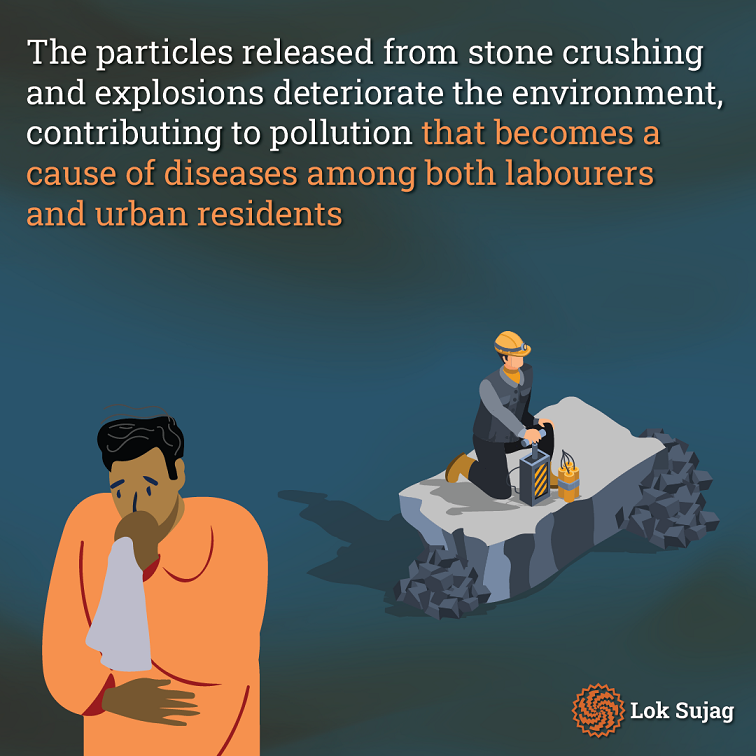
“Stone crushing is challenging and life-threatening, and the compensation is negligible. Moreover, this hazardous mining is causing environmental degradation. Workers are falling victim to diseases, and companies only provide treatment in the event of an accident.”
According to the Department of Mines, approximately 240 stone-crushing plants operate in Balochistan, with around 12 in the Qila Abdullah district alone. The Workers’ Welfare Board of Balochistan has registered over 6,000 workers employed in these units.
The registration of crushing units is carried out under the Mines Act of 1923, following the Environment Protection Agency’s (EPA) approval. The Mineral Department allocates sites and issues licenses, but the EPA oversees their supervision.
The director of CINAAR Cancer Hospital in Quetta, Dr Khush Naseeb Ahmed, says that in the past year, 171 patients with lung cancer were admitted, including 112 mine workers.
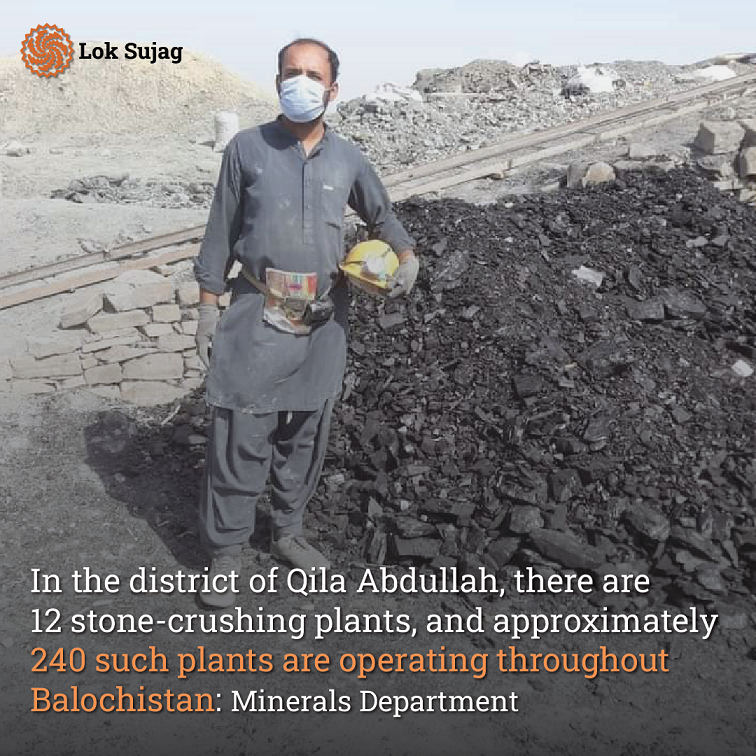
“When labourers were admitted to the hospital, companies refused to cover expenses, and eventually, the government had to bear these costs.”
He says that lung cancer among mine workers is due to dust, soil, and a lack of oxygen. Stone crushing and explosions release particles that deteriorate the environment, causing diseases among both labourers and urban residents.
Dr Khush Naseeb says that mining workers do not have any life insurance, nor are suitable protective measures taken for their ears and nose.
“The helmets of mine workers are not strong enough to withstand the pressure of stones or excessive weight. As a result, they often suffer deep head injuries, causing significant damage to the brain.”
According to the report of the Human Rights Commission of Pakistan (HRCP), from June 2022 to June 2023, there have been 71 fatalities and more than 25 injuries in incidents related to coal mines in Balochistan. However, the commission’s report does not explicitly address surface mining.
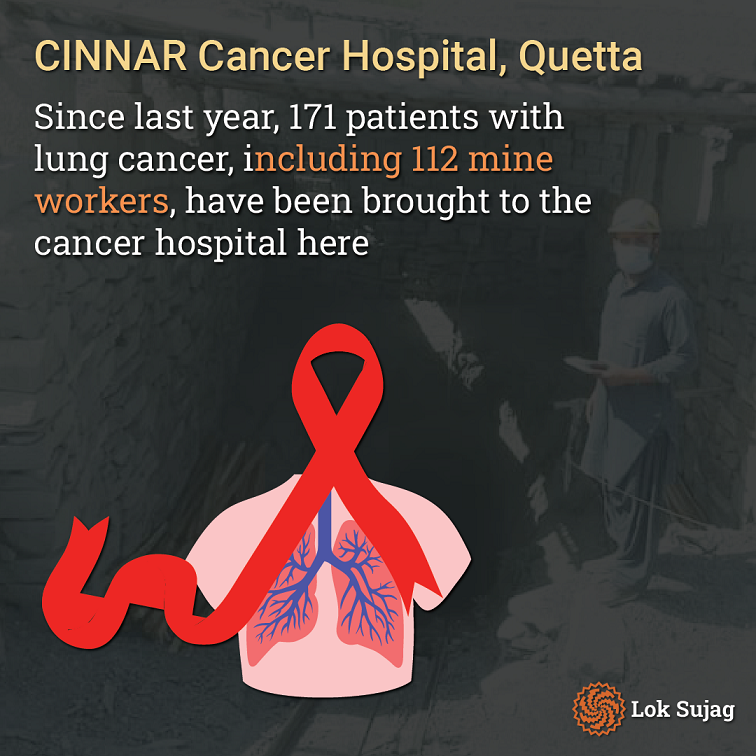
The Workers Welfare Board claims that they are fully committed to the well-being of labourers. According to the board’s policy, in the event of a fatality in an accident at a crushing unit, the worker’s family is provided with financial assistance of up to five lakh rupees, and labourers are eligible for a marriage grant of up to one lakh rupees for their daughters.
Under the policy, children of miners working on the surface (surface mining) or underground are awarded educational grants ranging from Rs1,600 to Rs6,500.
Similarly, the provincial government’s financial assistance covers the expenses of children studying in engineering or medical colleges.
However, Balochistan Labour Federation leader Abid Butt does not have confidence in the claims of the Workers Welfare Board. He asserts that while policies and laws may exist in the province, their implementation is lacking.
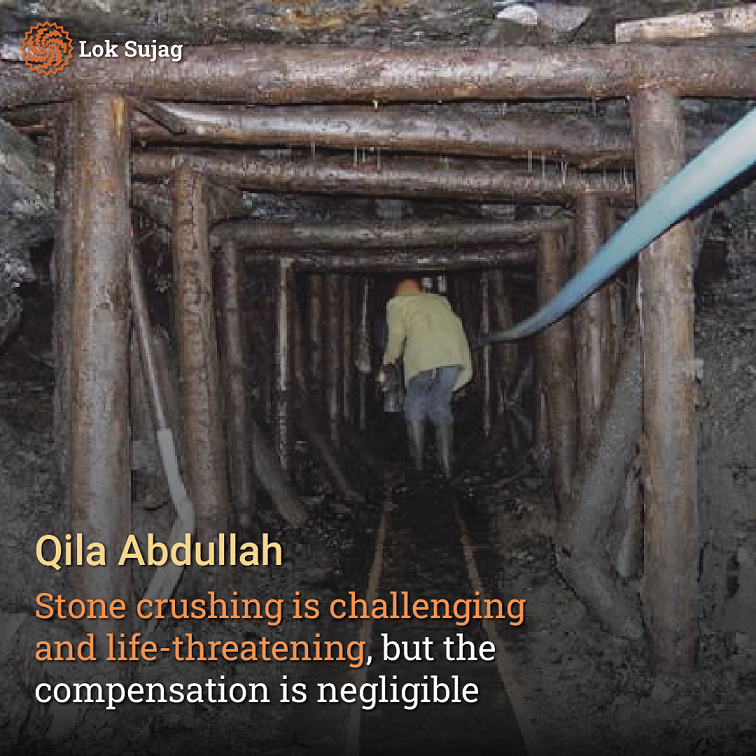
“The government does not assist the labourers, nor does it strictly implement the laws related to the protection and health of labourers. Even if they fall ill, no one inquires. However, action is taken on the grant for those who die in accidents.”
Bashir Ahmad, working as a manager in a mining company, shares the same opinion.
He says that the government does not play any role in stone crushing. He oversees 350 workers, and the entire responsibility for transport and health insurance lies with the company.
Muhammad Qasim is a graduate who has been involved in surface mining for seven years. He believes that stone crushing is the foundation of the construction sector. Despite the challenges of the work, the companies and the government are proving to be irresponsible.
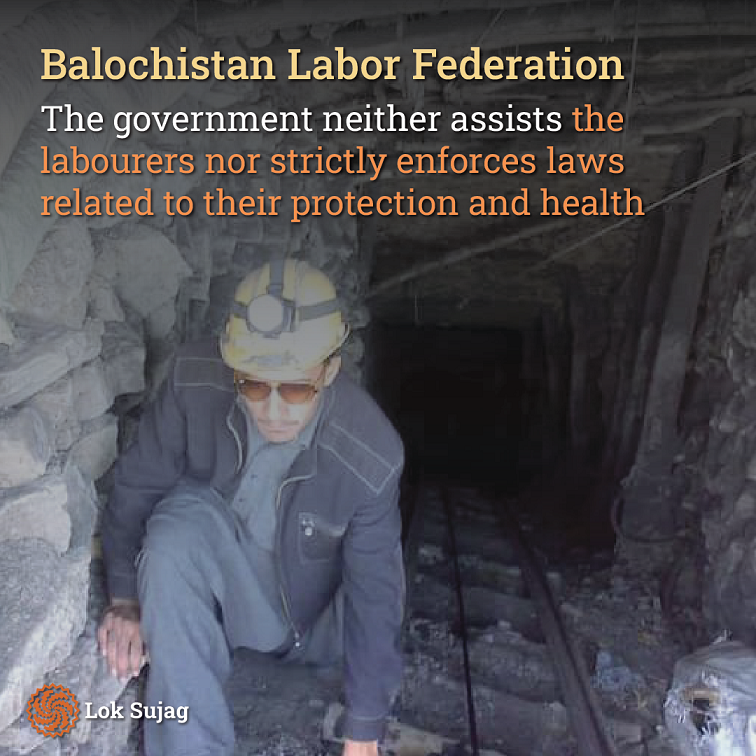
“Agencies are so engrossed in their businesses that they have no sense of environmental damage. People are falling prey to diseases like cancer. If new technology is introduced in the crushing sector and workers are trained, the working class and the environment’s losses can be minimised.”
A ban was imposed on surface mining in Quetta and its surroundings some time ago. Following the Supreme Court’s (SC) orders, 34 crushing plants were shut down, and their leases were cancelled. After obtaining approval from the EPA, mining will be allowed.
Ghulam Murtaza, Director of Climate Change and Enforcement at the Balochistan EPA, states that the region was experiencing significant damage from carbon and stone-crushing dust. Air pollution was on the rise in Quetta and surrounding areas.
Also Read
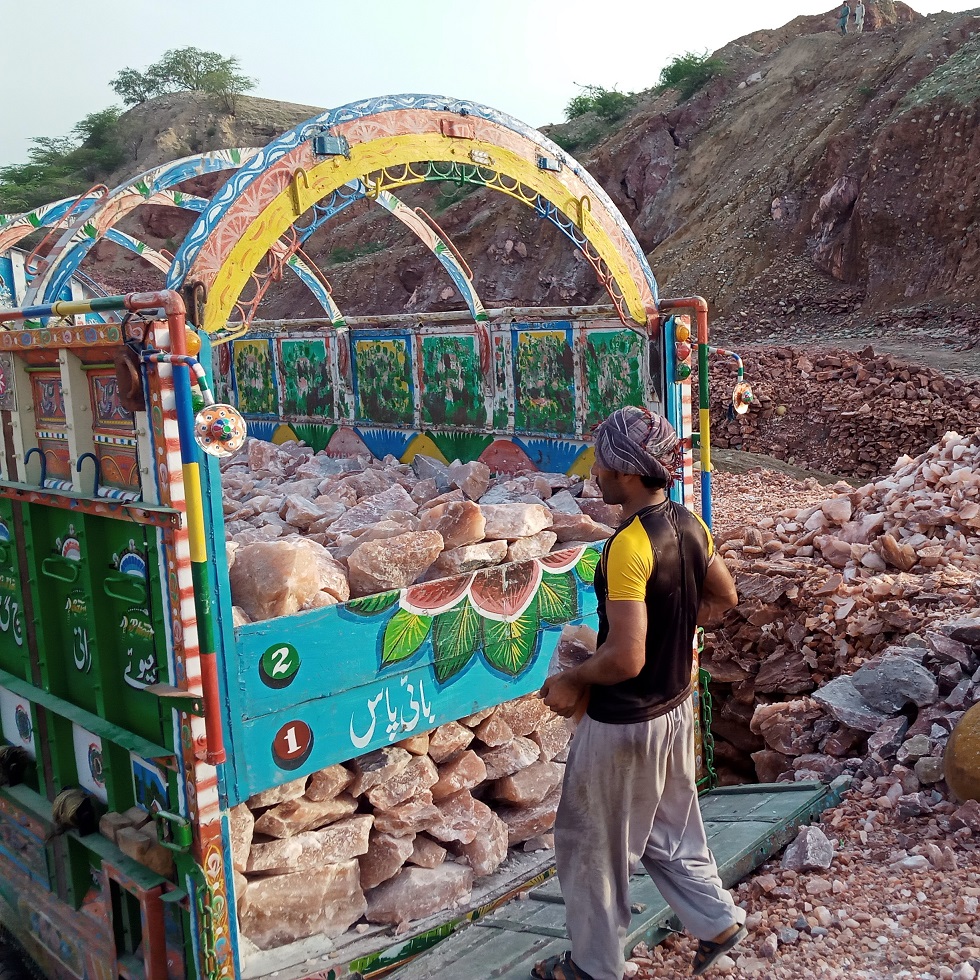
The harsh reality of Pakistan’s salt miners: Struggles and safety concerns
He says that, following the SC’s orders, crushing plants in Quetta have been shut down. Now, under the new policy of the Mines and Minerals Department, three areas have been designated for crushing. Plants will be set up in these areas, and the work is expected to commence soon.
Ghulam Murtaza says there are 13 crushing plants in Turbat, six in Panjgur, and eight in Gwadar. Not only were all 34 plants in Quetta closed, but many crushing plants in Makran were also shut down. These plants had not obtained a No Objection Certificate (NOC).
Bashir Ahmed agrees that surface mining should not be near populated areas. One of his mines in Hazar Ganji has also been shut down. However, according to him, the company is not at fault.
“Ten years ago, the city was far from the mountains, but now the population has reached the vicinity of the hills.” He says the labourers working for him engage in underground and surface mining based on their skills.
“Although the workers have helmets, jackets, and life-saving kits, providing protective equipment is impossible without government assistance.”
Published on 27 Nov 2023



















